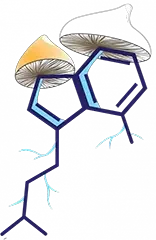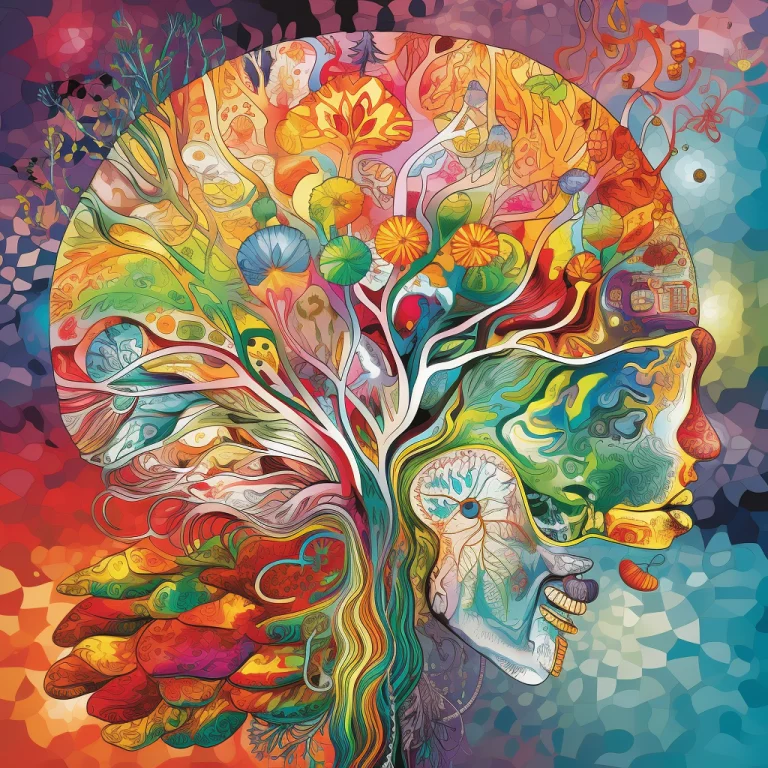Psychedelics and Psychiatry: A Deep Dive into LSD’s Therapeutic Promises
How LSD Works in the Brain
LSD acts as a potent agonist at serotonin 5‑HT2A receptors, disrupting usual neural networks and enabling openness, emotional flexibility, and perceptual shifts. This neurochemical activity underlies the potential for transformative therapeutic experiences.
Research suggests that LSD promotes synaptic plasticity and meta‑plasticity, potentially reopening developmental windows for healing and behavioral adaptation.
A Brief History of LSD in Psychiatry
From the 1950s to the early 1970s, LSD was explored by pioneers such as Stanislav Grof and Humphry Osmond for treating addiction, existential distress, anxiety, and mood disorders. Grof’s work laid foundational principles for transpersonal psychotherapy and holotropic breathwork. After a decades-long hiatus, modern clinical research is building on these early findings under controlled, ethical frameworks.
Modern Clinical Evidence
Today, LSD is being reevaluated in rigorous clinical trials, with institutions like MAPS exploring its potential in treating conditions like PTSD, depression, and anxiety. These trials are conducted under strict therapeutic protocols with promising early results.
LSD‑Assisted Therapy for PTSD
Emerging studies show that LSD-assisted therapy may help reduce symptoms of PTSD by enabling reprocessing of trauma, emotional regulation, and improved perspective. Early trials, such as those referenced by MAPS and European research teams, report marked symptom improvement in participants.
LSD for Depression & Anxiety
Clinical studies, including pilot trials, suggest that LSD may produce long-lasting reductions in depressive and anxious symptoms—especially when paired with psychotherapy. Patients often report increased emotional insight and reduced fear responses after guided psychedelic sessions.
Mechanisms: Neuroplasticity & Lasting Change
LSD increases neuroplasticity, encouraging new neural connections that may explain sustained therapeutic outcomes. This rewiring effect supports cognitive flexibility, emotional resilience, and behavioral shifts, even from a single session.
Safety, Ethics & Best Practices
LSD-assisted therapy must be conducted under ethical, medically supervised conditions. Pre-screening for psychosis risk, preparatory sessions, therapeutic support during the experience, and post-session integration are all essential. The risk of adverse reactions, such as acute anxiety or confusion, can be minimized with professional guidance and a controlled environment.
Ethical considerations include informed consent, cultural sensitivity, and safeguarding against misuse. Regulatory pathways continue to evolve to ensure responsible use as interest in psychedelic medicine expands.
Conclusion
LSD-assisted therapy is reemerging as a legitimate and potentially revolutionary approach in mental health care. With growing evidence for its efficacy in treating PTSD, depression, and anxiety, and increasing clinical interest, LSD may become a vital tool in the future of psychiatry—when applied safely and ethically.
To dive deeper, check out our resources on LSD therapy for addiction, microdosing LSD for mental health, and ethical considerations in psychedelic therapy.
FAQs
Is LSD therapy legal in Canada?
LSD therapy is currently only permitted within approved clinical research settings in Canada. Legal access for the general public is not yet available.
How long do LSD therapy effects last?
While the acute experience lasts 8–12 hours, therapeutic benefits may persist for weeks or even months due to changes in brain connectivity and emotional processing.
Is it safe?
When facilitated in controlled, clinical settings, LSD therapy is generally safe for screened participants. Adverse events are rare when safety protocols are followed.
Last updated: July 29, 2025
Author: Leo Thomas, Freelance Writer & Psychedelic Mental Health Researcher
Citation Section & External Links
- Mechanisms of LSD & Brain Function
Preller, K. H., et al. (2018). Effective connectivity changes in LSD-induced altered states of consciousness in the human brain.
DOI: 10.1073/pnas.1815129115
Explores how LSD acts on 5‑HT2A receptors and alters brain connectivity to facilitate transformative states. - LSD-Assisted Psychotherapy for Anxiety
Gasser, P., et al. (2014). Safety and efficacy of LSD-assisted psychotherapy for anxiety associated with life-threatening diseases: A randomized, double-blind, placebo-controlled phase II study.
DOI: 10.1177/0269881114527364
A clinical study demonstrating how guided LSD sessions may reduce anxiety symptoms in patients with life-threatening conditions. - Psychedelics and Neuroplasticity
Ly, C., et al. (2018). Psychedelics promote structural and functional neural plasticity.
DOI: 10.1016/j.neuron.2018.11.033
This review highlights evidence that psychedelic compounds like LSD can enhance neuroplasticity, offering a biological basis for lasting therapeutic benefits. - Historical Perspectives on LSD in Psychiatry
For additional background on the early pioneers and the historical context, please visit the
MAPS Research Website.
The Multidisciplinary Association for Psychedelic Studies (MAPS) provides a comprehensive overview of early and modern research in psychedelic therapy. - Additional Reviews and Meta-Analyses
For broader reviews on psychedelic psychiatry, consider exploring further articles such as those available through databases like
PubMed or
ScienceDirect by searching for “LSD-assisted therapy” or “psychedelic psychiatry review”.
These resources offer detailed evaluations of both clinical outcomes and methodological approaches in the field.



